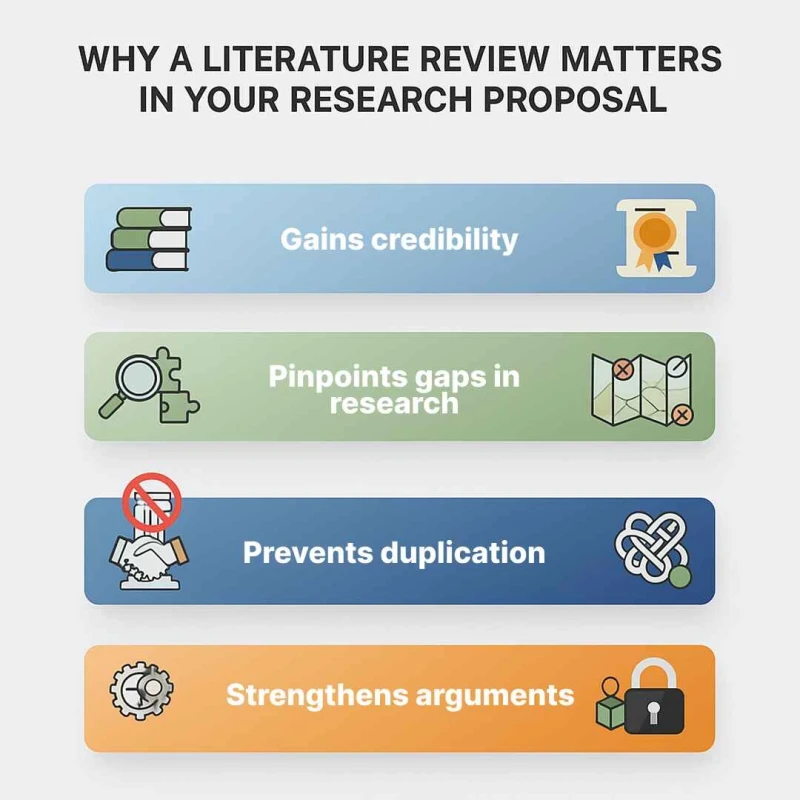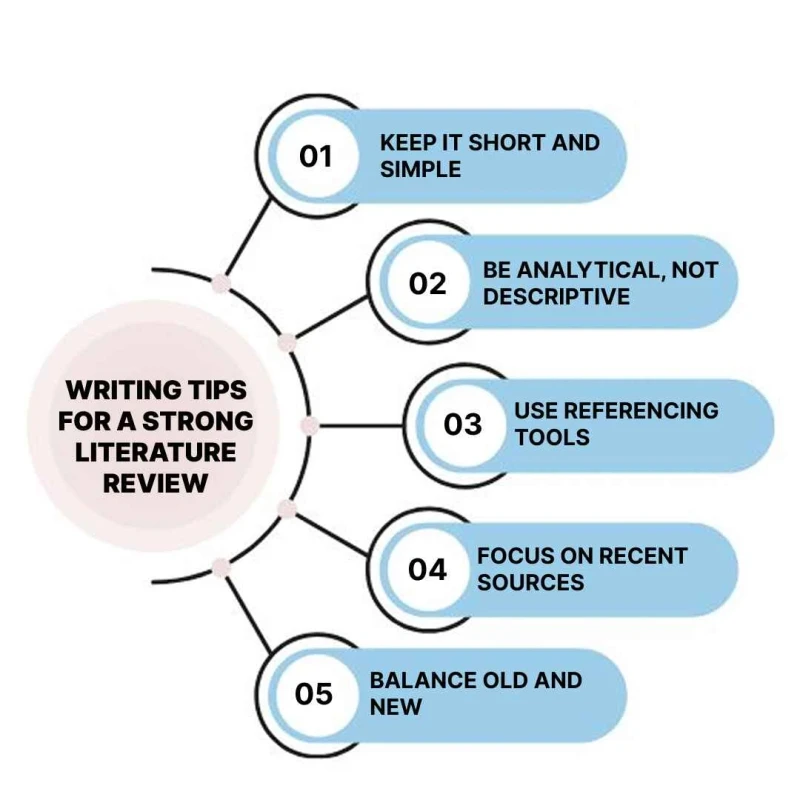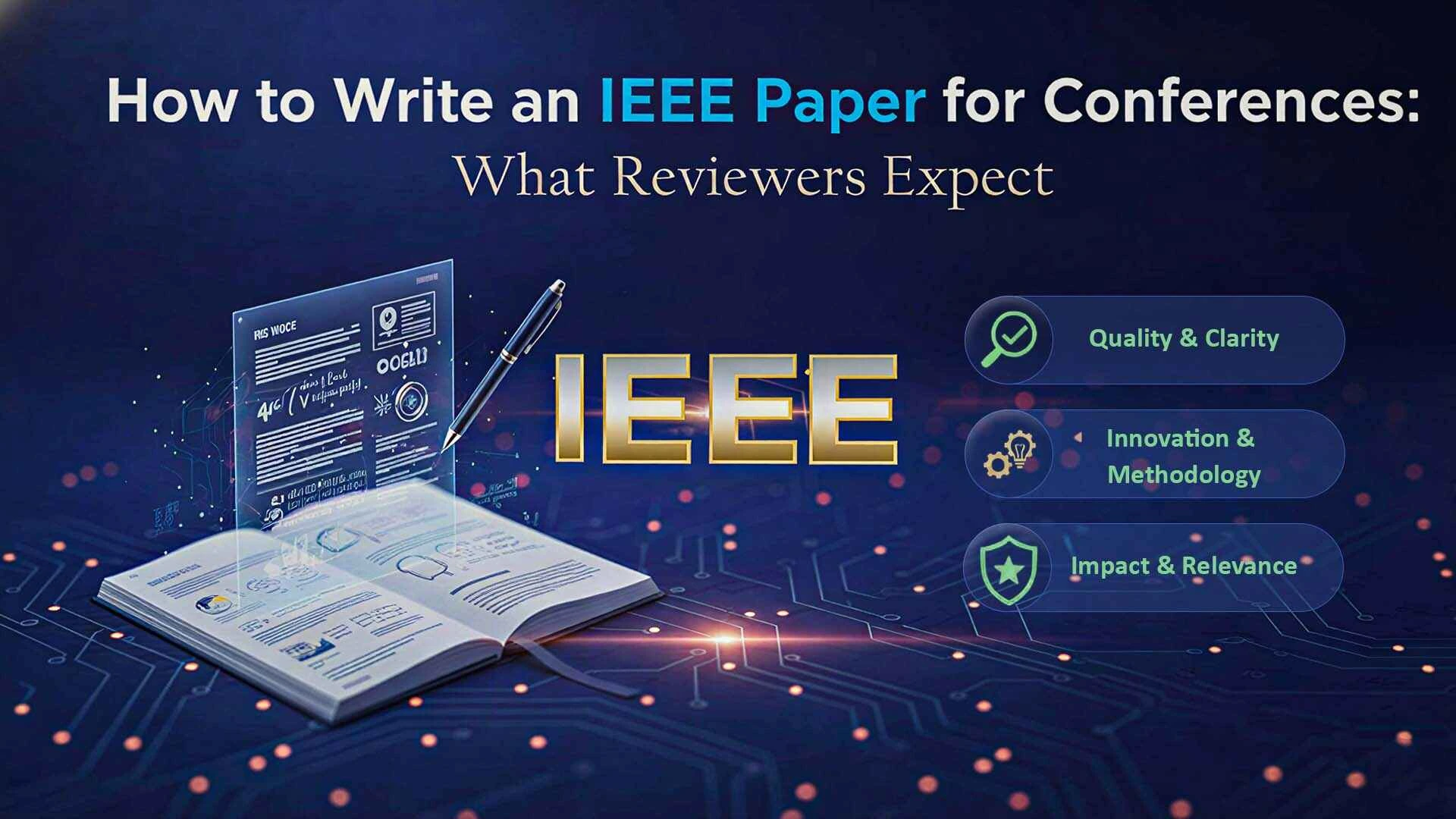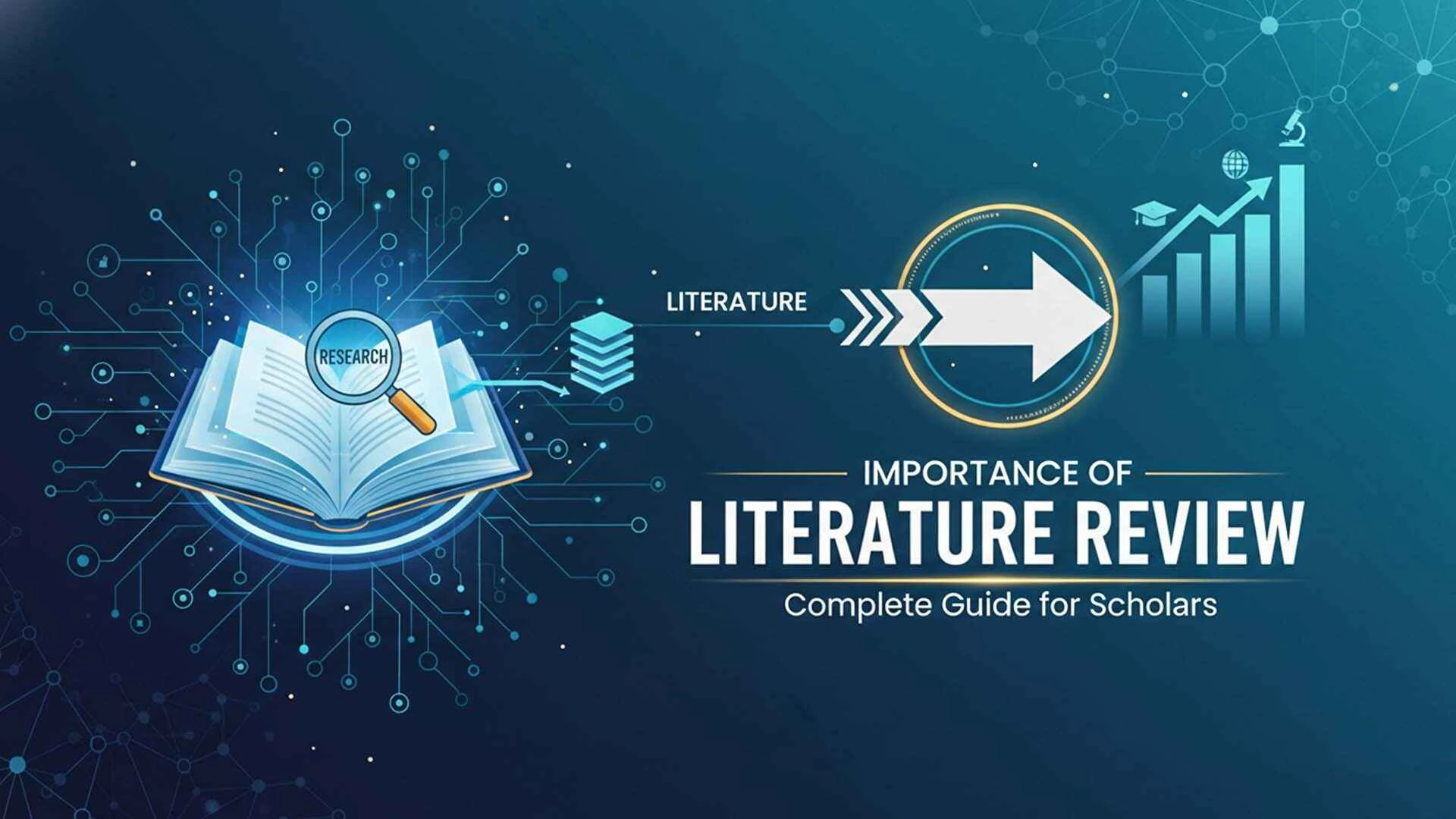
jefreena
Imagine this: a postgraduate student is drafting a research proposal with the hope of securing funding. The research idea is promising, but as reviewers assess the document, one section immediately draws their attention: the literature review in the research proposal.
This section reflects whether the student has engaged with existing scholarship, identified the research gaps, and built a strong foundation for the intended study.
For universities, research committees, and funding agencies, the evaluation of a proposal extends beyond the originality of the topic. Equal weight is often given to the quality and depth of the literature review.
At Ondexz, we have observed that many scholars face challenges in crafting this section effectively, and it frequently becomes the deciding factor between acceptance and rejection.
In this blog, we explain what a literature review in a research proposal entails, why it holds critical importance, and provide a step-by-step guide to help you write one with clarity and precision. You will also find practical advice on how to strengthen this section and present your research proposal with greater impact.
A Literature Review in a Research Proposal is more than a background section or a list of references. It is a carefully written summary and critical analysis of existing studies connected to your research area. The aim is to show what has been discovered already, what debates or issues remain unresolved, and how your own project fits into the bigger academic picture.
Consider it as constructing a bridge from previous knowledge and your intended study. A research thesis literature review, on the other hand, tends to be comprehensive and extensive, at times spanning hundreds of pages. The proposal version is tighter, more concise, and straight away focused on your research goals.
For instance, if your proposal is for climate adaptation measures in urban planning, your literature review must identify the most applicable studies on climate resilience, gaps in current models, and how your research will bring new solutions to the table.
This section is important because it assures the reviewers that you are not repeating existing knowledge, but instead contributing useful insight.

It is greatly difficult for most of the researchers to know how to write a literature review for a research proposal, although its worth is tremendous. A good review achieves some very important benefits:
It demonstrates that you seriously studied your discipline and appreciate its premises.
By going over what is previously known, you expose areas where there remains scope for study.
It prevents your project from duplicating efforts already made by others.
A review underpins your goals with evidence, and thus your proposal becomes more convincing.
If you are wondering how to write a literature review for a research proposal, the task would appear daunting initially. Dividing it into steps makes it accessible:
Begin with precision. Ask yourself: What is my research question? What am I attempting to accomplish? This will help you choose only the most applicable studies. For example, if your proposal is on how digital education impacts rural students, you don't need all studies on education, just those that are associated with digital technology, rural education, and student achievement.
Use credible academic databases such as Scopus, Web of Science, JSTOR, or Google Scholar. Institutional libraries also offer access to peer-reviewed journals. Make a list of the most cited articles and the latest publications in your area.
A handy tip: organise your sources with tools such as Zotero, EndNote, or Mendeley. They are time-saving and ensure accuracy when you reference.
This is where a lot of students get it wrong. A literature review is not an easy listing of articles. Rather, it is a critical analysis. Contrast the findings, note agreements or contradictions, and evaluate the strength of various methodologies.
For example, while Smith (2020) argues that online learning boosts student confidence, Johnson (2021) found that rural students struggle due to poor connectivity. This contrast highlights a gap in exploring hybrid models that combine digital tools with local resources.
An organised review helps readers follow your arguments. You can structure it in different ways:
Thematic: Organise studies by themes like use of technology, outcomes for students, and policy interventions.
Methodological: Contrast qualitative, quantitative, or mixed-method studies.
Chronological: Follow the path of how the debate developed over time. Select the method that best suits your goals.
This is the core of your review. Having talked about current studies, highlight what they did not capture. Then indicate how your study will fill that gap.
For instance, although some studies concentrate on urban digital learning, not many delve into rural settings in developing nations. This lack is a reason why I would research adaptive models for rural learning.
By concluding on the gap in the research, you make your review meaningful and linked to your proposal's relevance in a direct manner.

If you are researching how to write a literature review in a research proposal, these handy hints will assist you:
Keep it short and simple: Steer clear of long sentences. Make it easy to read.
Be analytical, not descriptive: Do not merely summarise; assess and link concepts.
Use referencing tools: Programs such as Mendeley simplify citation management.
Focus on recent sources: Demonstrate that you know about current research trends.
Balance old and new: Although new research is central, traditional works provide the background required.
Recall, your review is strongest in its clarity and critique.
Oftentimes, researchers ask themselves how to do a literature review for a research proposal in instances where deadlines are imminent or English is their second language. In these situations, hiring a professional can save you both time and anxiety.
Professional assistance can assist with:
Logically organising the review.
Making the research gap clear.
Proofreading for consistency, flow, and grammar.
Proper referencing in accordance with journal standards.
At Ondexz, we offer customised academic assistance to assist researchers in refining their proposals. If you require assistance, you can always reach out to us for assistance.
A Literature review in a research proposal is not an additional section; it is the framework of your research proposal. It demonstrates that your study is evidence-based, pertinent to your discipline, and can make a contribution.
Through establishing your scope, locating and critically analysing sources, and connecting your work to the gap in research, you can write a review that will impress reviewers. Don't forget to remain concise, clear, and critical in all you do.
And if at any point you get stuck, know that assistance is at hand. Here at Ondexz, we focus on helping scholars with proposal writing, literature reviews, and research assistance. Do not wait to receive assistance from us today and take the next step in your academic path in confidence.

Machine Learning Research Paper: How to Design, Write, and Publish Cutting-Edge ML Research

How to Write an IEEE Paper for Conferences: What Reviewers Expect

Importance of Literature Review in Research – Complete Guide for Scholars

How to Write a Synopsis for a Thesis: A Complete Writing Framework

Top 5 Best Literature Review Writing Service for PhD Scholars